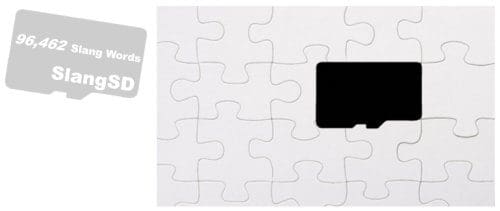SlangSD: A Sentiment Dictionary for Slang Words
The Slang Sentiment Dictionary (SlangSD) includes over 90,000 slang words together with their sentiment scores, facilitating sentiment analysis in user-generated contents.
By Liang Wu, Fred Morstatter, and Huan Liu, Arizona State University.
People use internet slang words such as “OMG” and “LOL” to express their feelings. Identifying slang sentiment words can be an extraordinary advantage to accurately discovering sentiment hidden in tweets and customer reviews. In order to facilitate sentiment analysis in user-generated content, ASU DMML has released a sentiment lexicon dedicated to internet slang words, SlangSD.
SlangSD is the first sentiment lexicon for slang words, which provides over 90,000 slang words/phrases and their sentiment scores, ranging from “Strongly Negative”, “Negative”, to “Neutral”, “Positive” and “Strongly Positive”. We collect slang words from Urban Dictionary (www.urbandictionary.com), which is the largest crowdsourced online dictionary of slang words. The sentiment score is estimated automatically based on existing sentiment words, word-to- word similarity, and the word usage in social media.
Download, Integrate, and Use
As an additional lexicon, SlangSD can be downloaded (slangsd.com/data/SlangSD.zip) and easily integrated with existing sentiment analysis projects.
Expand, and Build Your Own Dictionary
SlangSD is built upon Urban Dictionary, social media content, and existing sentiment lexicons, and the building process is entirely automatic. Therefore, it would be easy for other researchers to expand the lexicon or build their own “SlangSD”. The generation consists of the following two steps:
- Collecting slang words and phrases from Urban Dictionary.
- Calculating sentiment scores of slang words through:
- Referencing existing sentiment lexicons;
- Cross-referencing co-occurred sentiment words with tweets;
- Estimating with user-provided synonyms.
For more details about how we build SlangSD and the results of how SlangSD improves existing sentiment analysis tools, please find the report at arxiv.org/abs/1608.05129.
Related:

